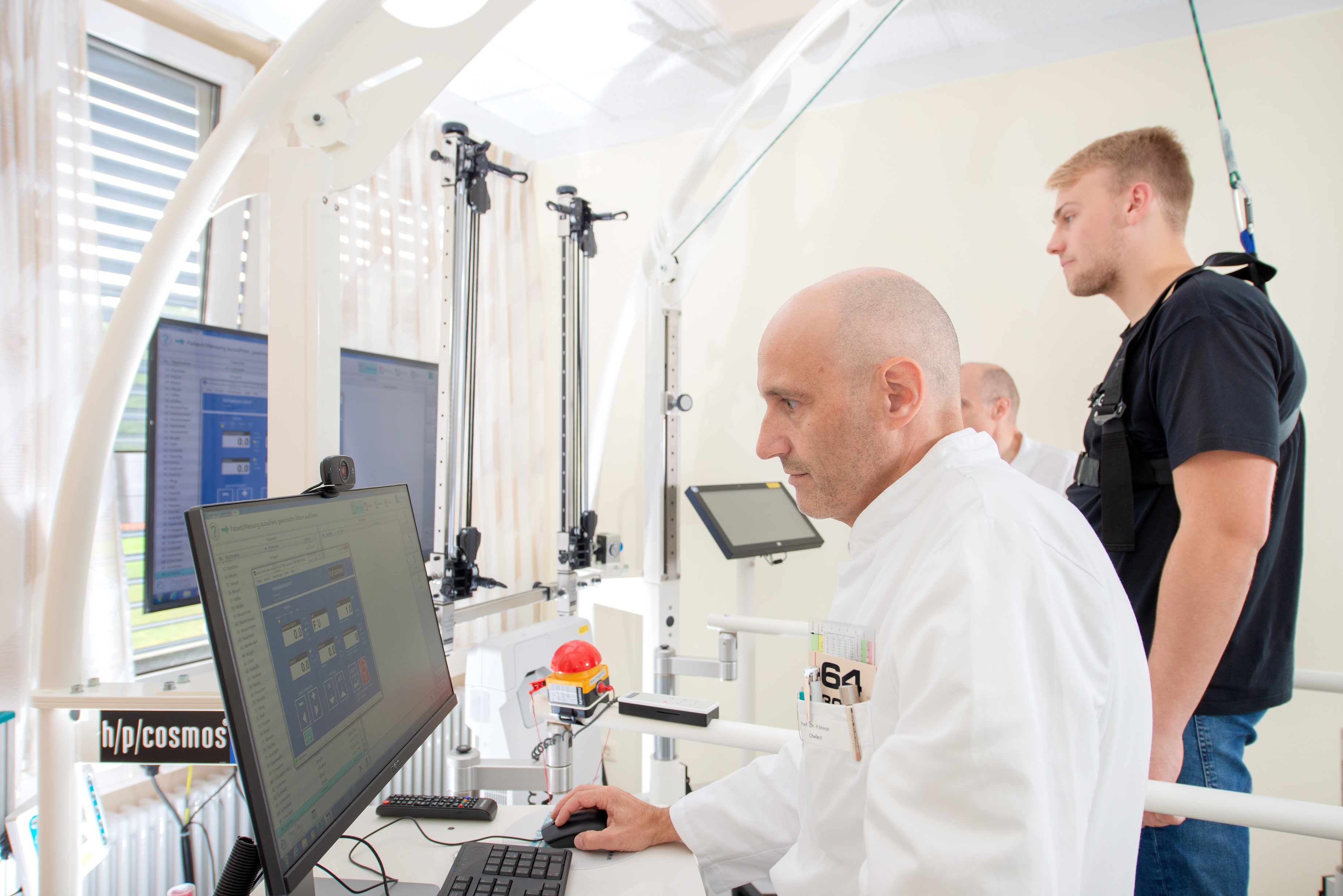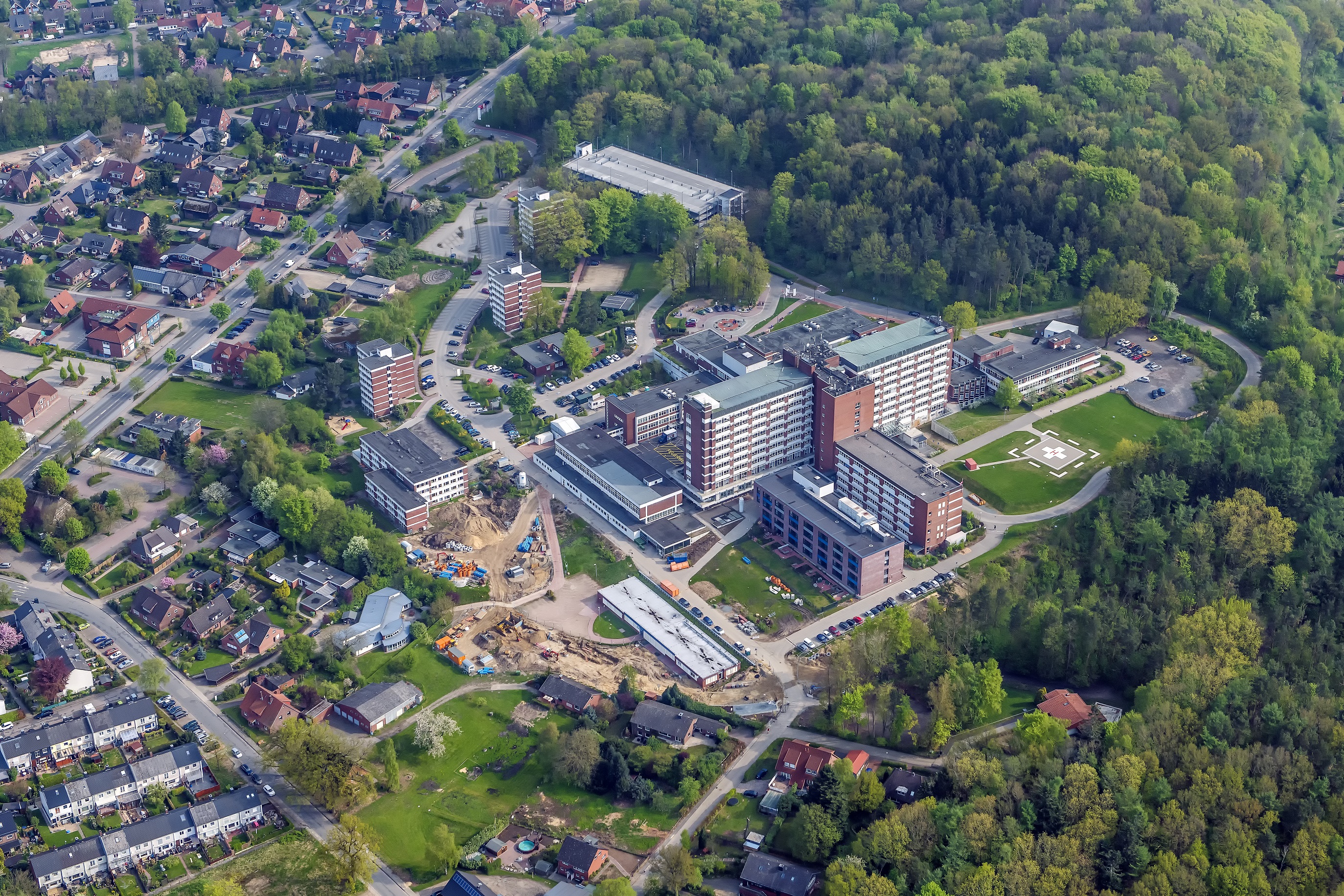Prof. Schmidt on RSU-EKS partnership: 'RSU students are a key part of our medical future'
Laurence Dietze, Cooperation Coordinator, medical student,
RSU International Department
Prof. Holger Schmidt is the Head of the Neurology Department and a key figure in establishing the cooperation between Rīga Stradiņš University (RSU) and Elbe Klinikum Stade (EKS). He has played an instrumental role in bringing this partnership to life.
How did the Riga-Stade programme originate, and what led to the collaboration with RSU?
As a teaching hospital for the University Medical Center Hamburg-Eppendorf (UKE), we have been accustomed to hosting 6th-year students for a long time. Not only I, but also other heads of department, recognised early on that among our international students, those from Baltic universities, particularly from Riga, were very well educated.
Around 2015, the board of directors realised that despite significant efforts from the government, including the establishment of a new Faculty of Medicine in Oldenburg, the supply and demand of medical doctors in Lower Saxony was no longer balanced. Since then, we have been seeking a strong, high-quality partner to meet our own needs for new medical talent.
One of our doctors completed his medical training at RSU, which led us to establishing contact with the Dean’s office. This resulted in an increasing number of 6th-year students coming to Stade. However, we wanted to go beyond 6th-year training and sought to extend the cooperation.

How would you sum up the concept of this programme?
We are already part of the University of Hamburg network of teaching hospitals, and we aim to maintain and strengthen this partnership.
We asked our UKE partners for permission to establish an additional partnership with RSU. After receiving their approval, we organised a kick-off and brainstorming meeting with decision-makers from RSU here in Stade.
Our vision was to offer bedside teaching for 4th and 5th-year students from RSU who possess C1-level German proficiency, as we had heard from German students that they struggled with acquiring Baltic language skills. Offering bedside teaching in German here would facilitate their learning.
The first pilot exchange began in 2022; I vividly recall being part of the initial cohort to attend the outstanding Orthopedics and Psychiatry courses. What has been your experience with the programme since its inception?
We started gradually, offering only a few courses initially, and have since successfully expanded the range of courses. Our colleagues from Riga evaluated the quality of our teaching and monitored whether our students successfully passed their exams, which they did.
From my interviews with the students, I understand that they were very satisfied with our courses. They mentioned that they would recommend this programme to other students as well.
In the meantime, we have informed the Ministry of Science and Education about the programme, and we are transitioning from the pilot phase to establishing a regular RSU branch in Stade.
The official opening ceremony is scheduled for 12 September. What are your plans for the future development of the programme?
Our goal is to increase the number of students at the hospital to two cohorts, which would mean around 20 students per semester. However, the exact pace of this growth is still uncertain. Our long-term goal is to reach a total of 96 students.
What would you identify as the remaining challenges that need to be addressed to ensure the programme's success?
In my view, the main challenge lies in the ongoing construction work, as we are building a completely new school building.
For the time being, we are using a floor in a former nurses' dormitory. Despite being a temporary solution, I believe these rooms are quite nice and are equipped with a whiteboard, which helps facilitate learning.
Many students are keen on research and employment opportunities both during and after their studies. What insights can you share about these prospects?
Those who wish to work in the hospital can be offered positions in the emergency department, as well as in areas like quality control. Of course, given the demands of their studies, this work must be flexible.
This is paid work, with a wage of €15 per hour. From what we've observed, our students have done an excellent job and have gained valuable real-world experience.
In terms of research opportunities, we are applying for RSU grants, and we can also offer doctoral positions in collaboration with German universities.
Can you compare the academic approaches in medical education between Riga and Stade? Are there particular teaching methods or curricular focuses that stand out in either location?
Our primary aim is to deliver lessons with the same level of quality that students are accustomed to in Riga. The reason we begin with the 4th year is that we cannot compete with the outstanding simulation lab in Riga, and we likely never will. On the other hand, with our more practical approach and patients who speak German, bedside teaching might be easier to implement here, as there is no need for translators.
You have been in Stade for 12 years now. How would you describe life there?
Life here is much calmer than in larger cities like Riga or Hamburg. However, Hamburg is not far from here and is well connected by public transport. My family and I regularly take advantage of Hamburg's cultural offerings, such as our subscription to the Elbphilharmonie concert hall and other concerts and art events.
That said, Stade is not merely a satellite town of Hamburg; it has its own cultural scene, with concerts, parties, and sports events.

Aerial view of Elbe Klinikum Stade.
Finally, could you sum up why students should choose Stade as a destination for studying medicine?
Our teachers are experienced specialists who are eager to recruit individual students for their teams. This explains their higher level of motivation. Additionally, our smaller size provides a more familial atmosphere for many students.
Specialists in bedside teaching are not the norm at German universities.
Prof. Schmidt, thank you a lot for these insights and your effort to making this programme happen!
Related news
 Time capsule laid at ceremony for construction of new RSU sports complexFor Students, Consolidation, For RSU Employees, Internal consolidation, Development
Time capsule laid at ceremony for construction of new RSU sports complexFor Students, Consolidation, For RSU Employees, Internal consolidation, Development


